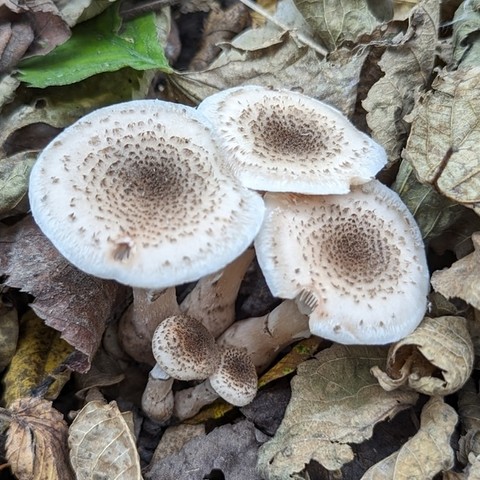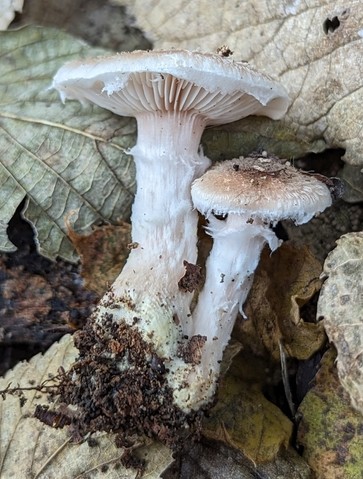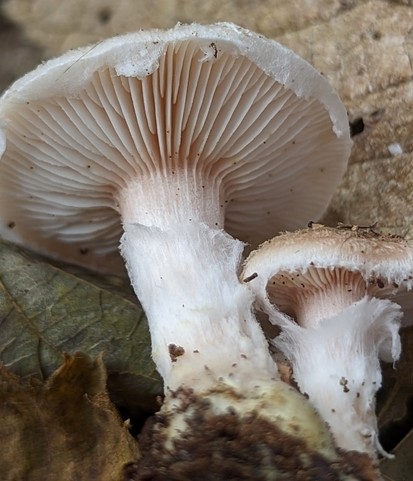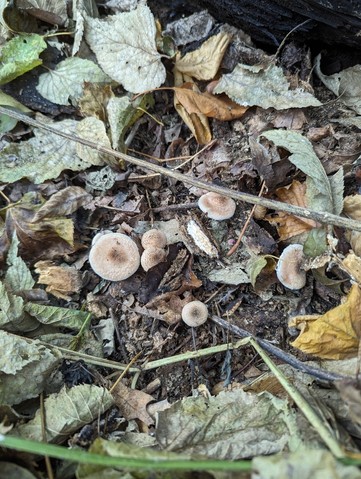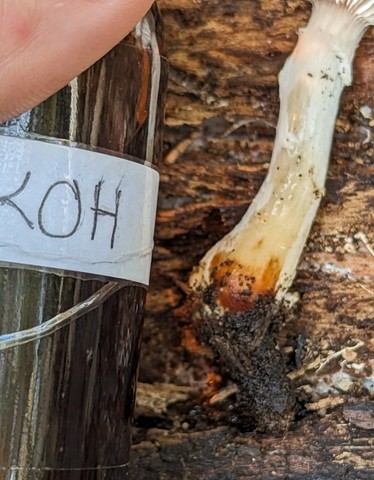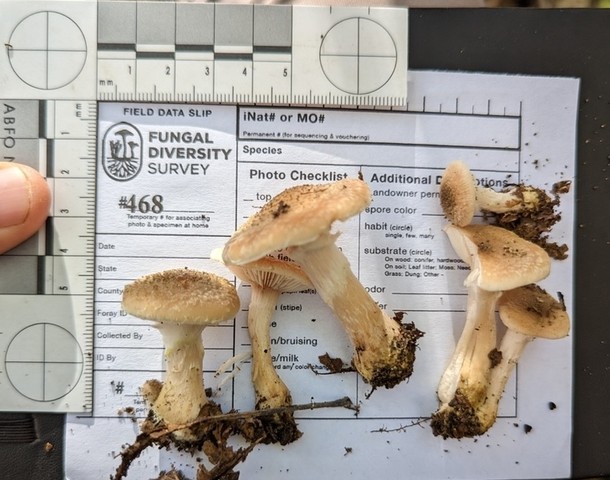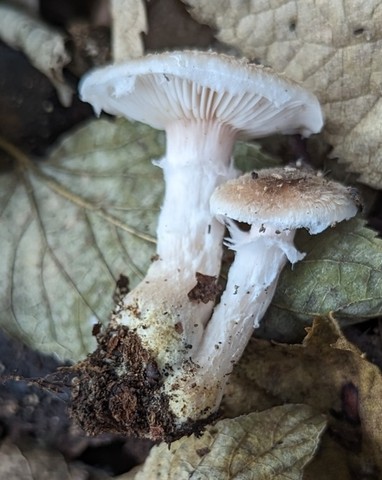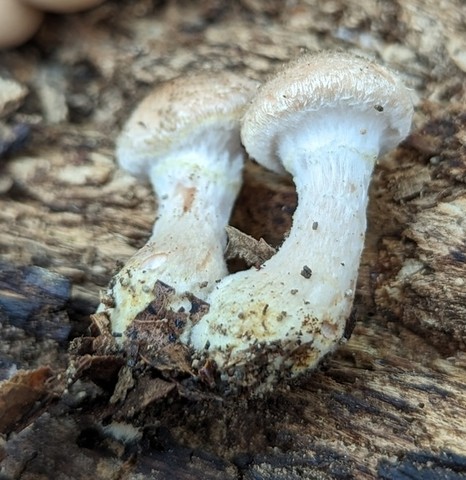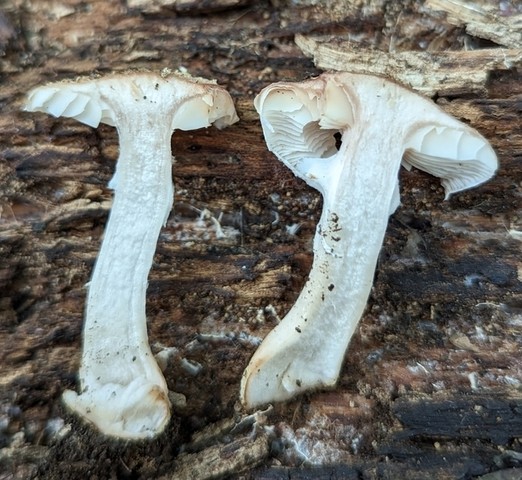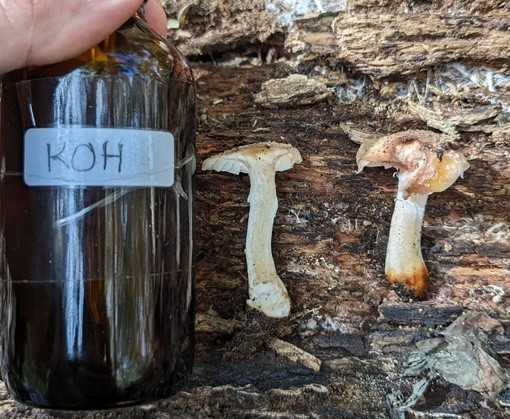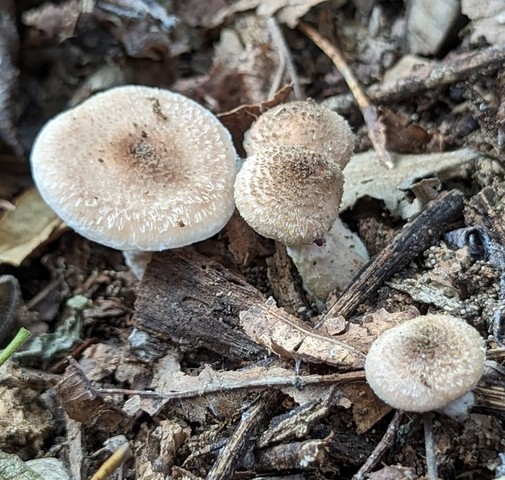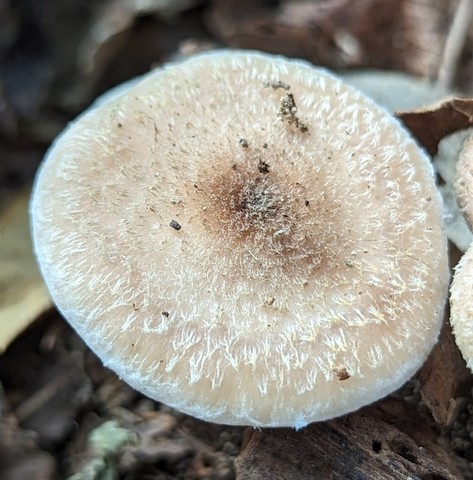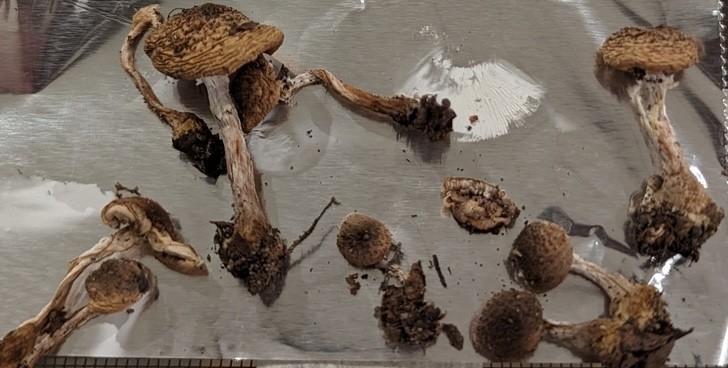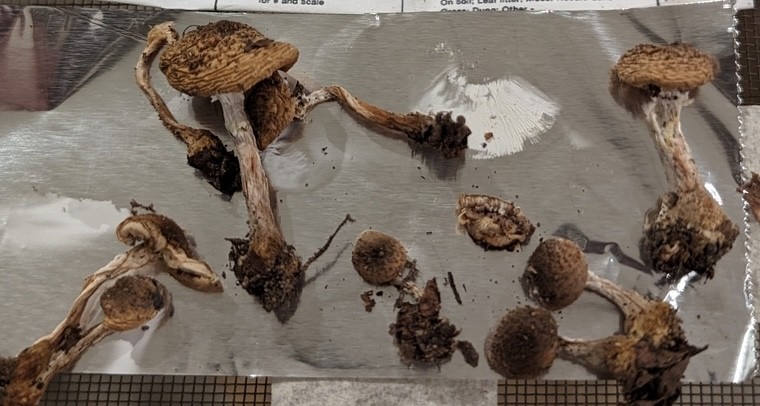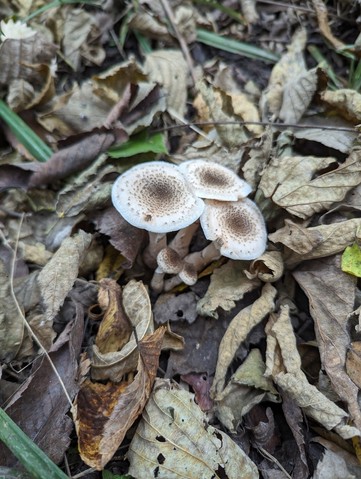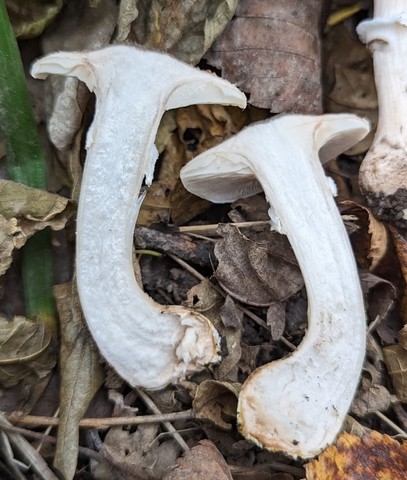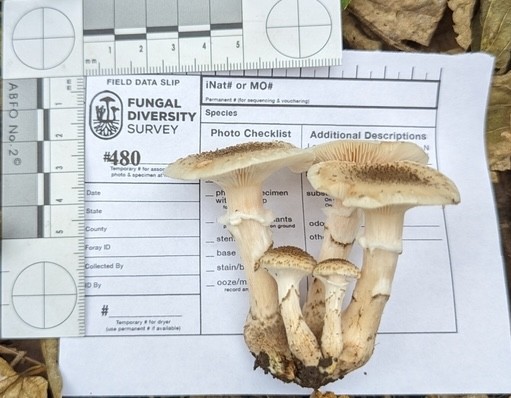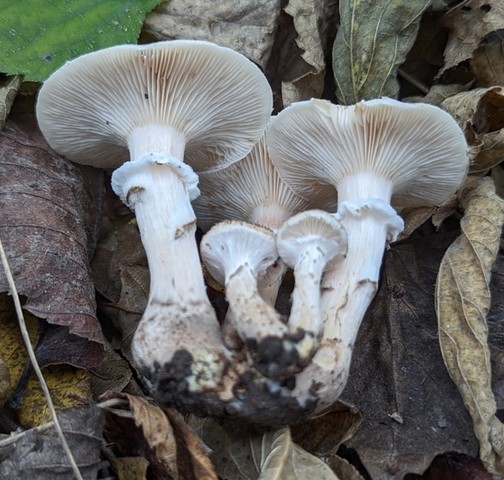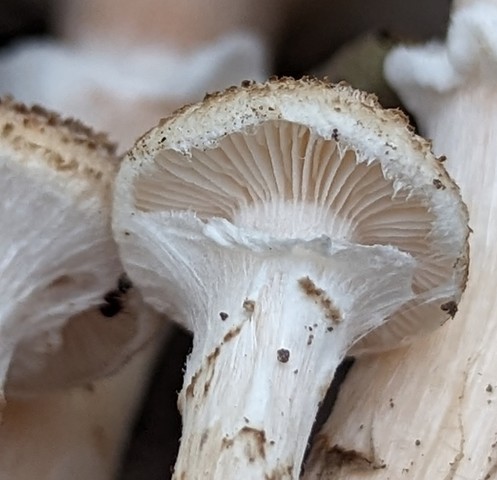White Honey Mushroom
Armillaria gallica
Life > Fungi > Basidiomycota > Agaricomycotina > Agaricomycetes > Agaricomycetidae > Agaricales > Marasmiineae > Physalacriaceae > Armillaria
Description
The White Honey Mushroom (Armillaria gallica) is a decomposer of wood and can be found in the fall. It has a widespread distribution in Eastern Nebraska from Indian Cave State Park to the Niobrara Valley Preserve (Mee-Sook & Klopfenstein, 2011). A. gallica can be found in areas of dead trees decomposing wood and buried roots and is common in wooded areas and occasional lawns (decomposing tree roots).
The cap is ornamented with distinct scaly hairs that are more abundant toward the center of the stem as the mushroom matures.
The gill color is whitish. The gills are attached to the stem and sometimes have a short bit that runs down the stem (decurrent tooth).
This species has a high degree of color variation. The specimen below has a whiter base color with darker cap scales than the one above.
Fruiting bodies grow alone or in small clusters. The stem shape has an enlarged base (bulbous). It has a ring (annulus) that is cobwebby to membranous in composition. It does not have a cup at the base (volva). The spore print is white.
October 24th, 2023 Field Notes - Indian Cave State Park
468
Observed At: Tuesday, October 24, 2023 10:31 AM Created At: Tuesday, October 24, 2023 10:31 AM Last Modified At: Tuesday, October 24, 2023 11:07 AM locations: 40.254601173049124 -95.55665001723096 Form Group: Smell: pencil eraser Form Group: agaric Substrate: Substrate: terrestrial, lignicolous Growth Habit: Growth Habit: gregarious Habitat: Habitat: ( Growth Habit: gregarious, Substrate: terrestrial, lignicolous, Associated Trees: ( Carya cordiformis ) ) Associated Trees: Associated Trees: ( Carya cordiformis ) Cap: Pileus: ( Shape: ( Top view: orbicular; Profile: convex to plane to umbo to broadly umbonate ); Surface: ( texture: squamose [1]; moisture: dry-silky; color: cinnamon to pinkish buff to buff to curry-yellow to clay-pink to peach to salmon to flesh-pink [2]; koh color: brownish red [3] ) ) Shape: Shape: ( Top view: orbicular; Profile: convex to plane to umbo to broadly umbonate ) Surface: Surface: ( texture: squamose [4]; moisture: dry-silky; color: cinnamon to pinkish buff to buff to curry-yellow to clay-pink to peach to salmon to flesh-pink [5]; koh color: brownish red [6] ) Gills: Lamellae: ( Attachment: uncinate to adnate [7] ) Stem: Stipe: ( shape: clavate to terete to compressed; surface: fibrous; flexibility: firm; interior: solid to stuffed with pith ) Annulus: Annulus: ( Shape: subperonate ) Footnotes: [1] White to brown scales [2] Curry yellow bruising at the base [3] Turning reddish brown at yellow stem base [4] White to brown scales [5] Curry yellow bruising at the base [6] Turning reddish brown at yellow stem base [7] Sinuate
Spore Print: white
Field Characteristics:
480
Observed At: Tuesday, October 24, 2023 2:50 PM Created At: Tuesday, October 24, 2023 2:49 PM Last Modified At: Tuesday, October 24, 2023 2:54 PM locations: 40.260730859128394 -95.55750996386556 Form Group: Form Group: agaric Substrate: Substrate: terrestrial Growth Habit: Growth Habit: connate Habitat: In low draw adjacent to creek in oak hickory woodland Cap: Pileus: ( Shape: ( Top view: orbicular; Profile: plane to broadly convex to convex ) ) Shape: Shape: ( Top view: orbicular; Profile: plane to broadly convex to convex ) Stem: Stipe: ( interior: stuffed with pith [1] ) Annulus: Annulus: ( Texture: membranous to fibrillose ) Footnotes: [1] Inner pith as cottony threads.
References
Kim, Mee-Sook; Klopfenstein, Ned B. 2011. Molecular identification of Armillaria gallica from the Niobrara Valley Preserve in Nebraska. Journal of Phytopathology. 159: 69-71. https://research.fs.usda.gov/treesearch/38459
Kuo, M. (2017, January). Armillaria gallica. Retrieved from the MushroomExpert.Com Web site: http://www.mushroomexpert.com/armillaria_gallica.html
Created December 15, 2025 at 10:41 AM
